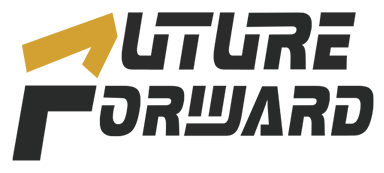


Norway
Norway, a stunning Nordic country in Northern Europe, is renowned for its breathtaking natural landscapes and high quality of life. Positioned on the western side of the Scandinavian Peninsula, Norway borders Sweden to the east, Finland to the northeast, and Russia to the far northeast. To the west, it is flanked by the North Atlantic Ocean, which has shaped its coastal geography and climate.
The climate in Norway varies significantly from coastal to inland areas, but it is generally characterised by mild summers and cold winters. Coastal regions experience a temperate maritime climate with relatively mild winters and cooler summers, while inland areas endure colder temperatures and more snow during winter. Above the Arctic Circle, the country’s northern parts are known for their unique polar climate and the mesmerising Northern Lights.
Norway is famous for its stunning fjords, majestic mountains, and vibrant cities like Oslo and Bergen. It is known for its rich Viking history, modern architecture, and a strong emphasis on environmental sustainability. Economically, Norway boasts a high standard of living and a robust economy supported by its extensive natural resources, particularly oil and gas. Travellers and expats find the country appealing because of its well-established welfare system, low unemployment rate, and consistent rankings of global quality-of-life indices.
Visa Eligibility, Types and Process
Visa Eligibility
Norway’s job market is strong and diverse, with key sectors including oil and gas, technology, maritime, and renewable energy. Known for its high quality of life and attractive working conditions, the country offers a competitive environment, especially for engineering, IT, healthcare, and finance experts. Norway’s emphasis on innovation, sustainability, and work-life balance makes it a desirable destination for skilled professionals.
To work in Norway, non-residents must obtain a work visa. The eligibility requirements for a Norway work visa are as follows:
- Job Offer: A confirmed job offer from a Norwegian employer is required.
- Relevant Qualifications: The applicant must possess relevant academic qualifications or professional experience related to the job.
- Application Form: A completed visa application form must be submitted.
- Passport: A valid passport with a minimum of six months’ validity.
- Proof of Accommodation: Evidence of accommodation in Norway.
- Financial Means: Proof of sufficient financial means to support oneself during the stay.
- Good Conduct: A clean criminal record and good character.
- Health Insurance: Valid health insurance coverage for the duration of the stay.
These requirements ensure that applicants meet the necessary criteria for employment and residency in Norway.
Application Process
Visa applications in Norway are processed by the Norwegian Directorate of Immigration (UDI). This agency handles all immigration matters, including work visas, ensuring that applicants meet the necessary criteria for employment and residency in Norway.
- Job Offer: Secure a confirmed job offer from a Norwegian employer.
- Prepare Documents: Gather all required documents, including a completed application form, a valid passport, recent photographs, proof of accommodation, proof of financial means, and relevant qualifications and work experience.
- Employer’s Role: The employer must provide supporting documents such as a detailed job description, employment contract, and proof that the local workforce cannot readily fill the position.
- Submit Application: Submit the application and all supporting documents to the UDI. This can be done online or at a Norwegian embassy or consulate.
- Pay Fee: Pay the applicable visa processing fee.
- Review Process: The UDI reviews the application to ensure all requirements are met and may request additional information or documents if needed.
- Approval and Notification: Once the application is approved, the applicant will receive a residence permit card, which serves as the work visa and must be collected in person.
The typical processing time for a Norway work visa is approximately 4 to 6 weeks, although this can vary depending on the completeness of the application and any additional information requested by the UDI.
Visa Types
Visa applications in Norway are processed by the Norwegian Directorate of Immigration (UDI). This agency handles all immigration matters, including work visas, ensuring that applicants meet the necessary criteria for employment and residency in Norway.
1. Skilled Worker Visa
For individuals with specialised skills and a confirmed job offer in Norway.
2. Seasonal Worker Visa
For temporary employment in sectors such as agriculture, tourism, and hospitality.
3. Researcher Visa
For researchers with a job offer from a research institution in Norway.
4. Intra-Company Transfer Visa
For employees of multinational companies being transferred to a Norwegian branch.
5. Entrepreneur Visa
For individuals starting or running a business in Norway.
6. Postdoctoral Researcher Visa
For postdoctoral researchers with a position at a Norwegian institution.
Visa Fees
The fees for obtaining a work visa in Norway cover the administrative costs of processing the application. These fees are set by the Norwegian Directorate of Immigration (UDI) and can vary depending on the type of visa being applied for. Here is an overview of the typical fees associated with Norway work visas:
1. Application Fee
The standard application fee for a Norway work visa is NOK 6,300. This fee applies to most types of work visas, including skilled worker and researcher visas.
2. Family Members
If family members are accompanying the main applicant, there is an additional fee of NOK 6,300 per adult family member and NOK 1,600 per child.
3. Renewal Fees
If the work visa needs to be renewed, the renewal fee is typically the same as the initial application fee, NOK 6,300.
4. Additional Fees
Additional costs may apply for document certification, translation, and other services required during the application process. These fees vary depending on the service provider and the specific application requirements
Benefits of Working in Norway
01
High Quality of Life: Enjoy a high standard of living with excellent healthcare, education, and welfare systems.
02
Competitive Salaries: Receive attractive and competitive wages, reflecting the high cost of living and robust economy.
03
Work-Life Balance: Benefit from a strong emphasis on work-life balance, with generous leave policies and flexible working hours.
04
Progressive Work Environment: Experience inclusive and progressive workplace policies, promoting equality and diversity.
05
Advanced Infrastructure: Utilize well-developed infrastructure and efficient public transportation systems.
06
Environmental Sustainability: Work in a country committed to environmental sustainability and green energy initiatives.
07
Comprehensive Labour Rights: Enjoy strong labour rights and protections, ensuring fair treatment and safe working conditions.
08
Cultural Experiences: Immerse yourself in a rich cultural scene with diverse arts, music, and outdoor activities.
09
Innovation and Technology: Engage with a forward-thinking economy focused on innovation, particularly in technology and renewable energy sectors.
10
Natural Beauty: Live amidst stunning natural landscapes, including fjords, mountains, and the northern lights, which provide ample opportunities for outdoor recreation.
Conclusion
Norway offers a compelling destination for skilled professionals seeking a high quality of life, competitive salaries, and progressive work environments. The country’s robust economy, driven by key sectors such as oil and gas, technology, and renewable energy, provides ample job opportunities, particularly for engineering, IT, healthcare, and finance experts.
Regarding long-term residency and citizenship, non-residents who have lived in Norway for seven consecutive years under valid residence permits may apply for permanent residency. After maintaining permanent residency for an additional period, individuals may become eligible for Norwegian citizenship, provided they meet specific language and integration requirements. Additionally, Norway’s healthcare system is one of the best globally, and employees typically benefit from comprehensive health insurance provided by their employers, ensuring access to high-quality medical care and financial protection. This combination of career opportunities, potential for long-term settlement, and robust healthcare support makes Norway an attractive choice for international professionals.
